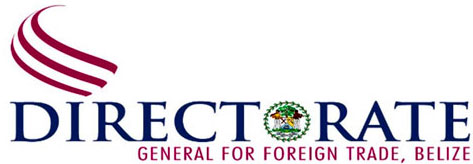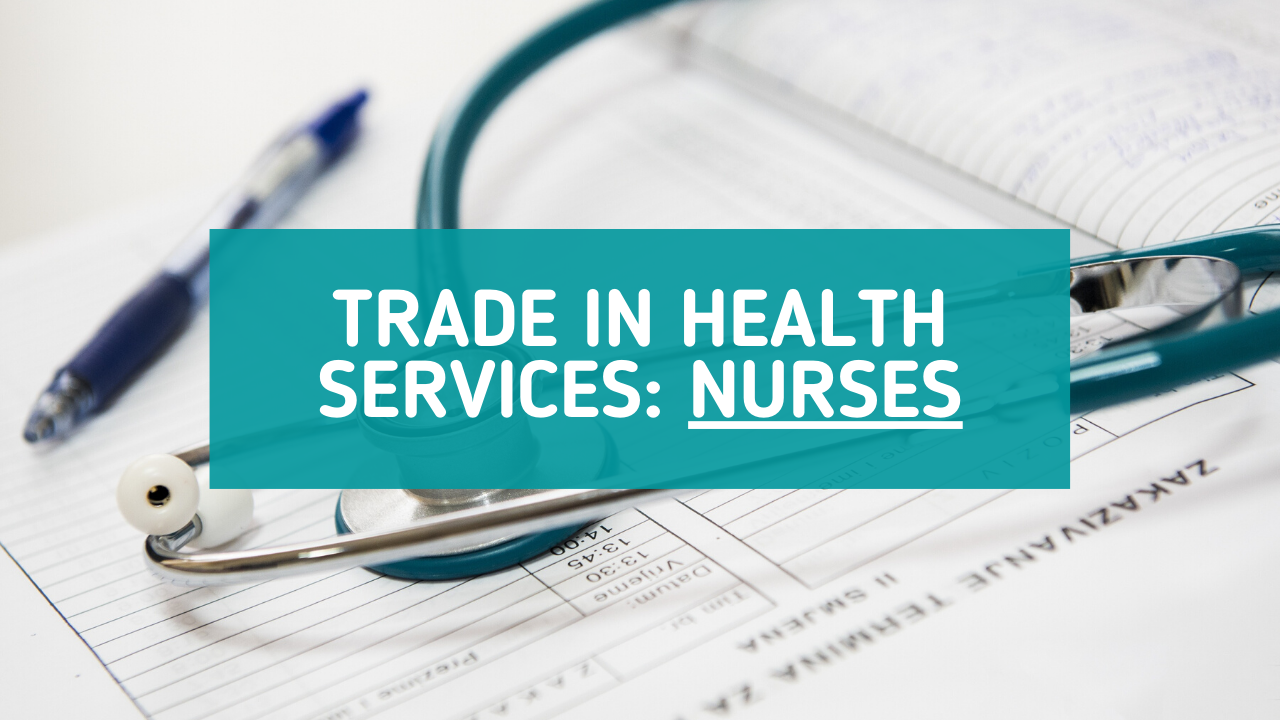The productivity of an economy’s labour force depends on how educated, skilled and healthy it is. These characteristics also feed into the quality of a country’s educational and health systems. Education, health and environmental services account for a small share of trade at present but are rising rapidly.
According to the World Trade Organization (WTO) 2019 report, trade in health services, from complex surgery to rejuvenation treatments, was estimated at US$54 billion in 2017, with a share in world trade in services of only 0.4%; however, with a steady annual average growth of 11% since 2005. Globally, more than 72% of health services were traded primarily by developed economies through affiliated hospitals and medical centres in other countries. According to the Caribbean Council, by 2021, the global health tourism market is estimated to generate between US$46.6 billion and US$125 billion per annum, with a compound annual growth rate between 13% and 19%. Caribbean countries that are well connected by air have advanced medical facilities and are able to attract well qualified physicians, as well as support staff and therapists will be well placed to capitalise on all aspects of health tourism.
Health Services are traded on the international market through four modes. The first mode is cross border delivery which specifically covers shipment of laboratory samples, diagnosis, second opinions and clinical consultation results through traditional mail and electronic channels (Chanda, 2001). The second mode is the consumption of health services abroad which covers a patient’s movement to another nation to receive medical treatment. The third mode is commercial presence which covers the establishment of health facilities in foreign countries. The fourth mode is the movement of health personnel which is the establishment of any health personnel in another country.
Internationally, Belize has made commitments in trade in health services in the areas of general medical services (CPC 93121), neuro-surgery (CPC 93121**), epidemiological services (CPC 93121**), and CATSCAN services (CPC 93122**). Belize has liberalized modes 1, 2 and 3 for these sectors. However, in the areas of mode 4, due to the sensitivity of the movement of persons across borders and to protect the local labour force, most countries have put in place restrictions to protect its senior and managerial personnel and technical experts.
In the Belize’s Human Resources Strategic Plan for 2019-2024, the Government of Belize recognizes health as an essential priority in the country’s national development. Although Belize has no national medical university, the country has four registered foreign medical universities. However, the University of Belize and the UNAN-Managua, a University from Nicaragua, have teamed up to develop Belize’s First National Medical School, offering both a Bachelor of Medicine and Bachelor of Surgery (MBBS) program by August 2020. Currently, the University of Belize (UB) trains most of the country’s nurses, pharmacists and laboratory technicians. For Belizeans who wish to further specialize in medicine, a few medical scholarships are available to Belizeans to study abroad, in particular, the Cuban scholarship programme. This programme, started by the late Cuban President, Fidel Castro in 1998, intends to build capacity within CARICOM Member States (Polanco, 2018).
Like every sector, the medical sector, in particular the nursing sector, is faced with a number of challenges. The main challenges encountered by the nursing industry include low levels of investment in human resources for health and shortages of nurses. Ассоrdіng tо thе Nurѕеѕ аnd Міdwіvеѕ Соunсіl, Веlіzе hаѕ 941 rеgіѕtеrеd nurѕеѕ of which 319 have temporary licences; hоwеvеr, а ѕtudу рublіѕhed by the Іntеr-Аmеrісаn Dеvеlopmеnt Ваnk (ІDВ) in 2018 ѕtates thаt thе country wіll nееd an estimated 2,000 nurѕеѕ bу thе уеаr 2038.
Table: 1 Total number of Nurses Currently Registered with the Nurѕеѕ аnd Міdwіvеѕ
Соunсіl of Belize (NMCB) for period 2017-2019
|
Nationality |
Registered Nurses |
Nursing Assistant |
Rural Health Nurses |
Professional Nurse Midwives |
Nursing Assistant Midwives |
| Belizean |
466 |
204 |
68 |
188 |
16 |
| Nigerian |
74 |
9 |
|||
| Filipinos |
8 |
||||
| Nicaraguan |
19 |
5 |
|||
| American |
28 |
1 |
|||
| Canadian |
4 |
1 |
|||
| Indian |
1 |
||||
| Guatemalan |
3 |
2 |
|||
| Taiwanese |
2 |
||||
| Honduran |
1 |
||||
| CARICOM Nationals |
15 |
7 |
|||
| Cameroonian |
1 |
||||
| British |
1 |
||||
| Total |
622 |
230 |
68 |
188 |
16 |
Source: Nurѕеѕ аnd Міdwіvеѕ Соunсіl
Table: 2 Temporary Licenses (1YR)
|
Nationality |
Registered Nurses |
Nursing Assistant | Rural Health Nurses |
Midwives |
| Belizean |
57 |
30 |
||
| Nigerian |
8 |
3 |
||
| Nicaraguan |
4 |
3 |
1 |
|
| Filipinos |
205 |
|||
| American |
29 |
2 |
||
| Canadian |
1 |
|||
| Indian |
4 |
|||
| Cuban |
9 |
|||
| CARICOM
Nationals |
2 |
1 |
||
| Total |
319 |
37 |
3 |
Source: Nurѕеѕ аnd Міdwіvеѕ Соunсіl
According to Belize’s Human Resources Strategic Plan for 2019-2024, Belize has recruited a number of nurses, mostly women, to assist with the shortage of health professionals, mainly from Cuba, Nigeria and the Philippines. However, language and cultural differences between patients and health professionals may affect the level of care given. Also, the number of available healthcare professionals fluctuate as foreign healthcare professionals return to their home country which results in inconsistency in the quality and availability of care provided. The Ministry of Health’s technical advisors keep a record and monitor private and public facilities and licensing, but there is no established constituted registry for health professionals. Despite these challenges, the association has been able to receive legal advice and scholarship opportunities for its members.
In February 2019, at the launch of the Нumаn Rеѕоurсе Ѕtrаtеgіс Plаn fоr 2019-2024, the Chief Executive Officer of the Ministry of Health noted thаt Веlіzеаn nurѕеѕ receive lucrative offers tо wоrk іn thе Unіtеd Ѕtаtеѕ аnd іn thе Unіtеd Кіngdоm, whісh рutѕ а ѕtrain on Belize’s healthcare system when nurses accept these offers. The Ministry is looking for innovative wауѕ tо retain nurses such as providing better working environments and conditions, career advancement opportunities, flexible work schedules, creating and maintaining a strong and supportive work culture, and recognizing and rewarding high performance. Even at the regional level, the shortage of nurses is a concern. In August 2018, the 45th Annual General Meeting of the Regional Nursing Body (RNB) called for urgent action to address the migration of nurses and midwives from the Region. Guyana’s Minister for Public Health, Volda Lawrence alluded to the Sustainable Development Goals, particularly goal three, which speaks to ensuring the health and well-being of the Community’s citizens and noted that critical and intense efforts were needed as 2030 approaches. “… we cannot achieve the goal of our citizens being the healthiest in the Caribbean, and the Americas, if we do not have at our disposal a core of highly qualified and professional dedicated health workers”, she said.
Given the educational opportunities in medicine in Belize, in October 2019, 70% of UB graduates who took the Regional Exam for Nurse Registration (RENR) passed. The RENR is a standardized regional exam, approved in 1990 by the Caribbean Commonwealth Health Ministers, that is administered by the Caribbean Examination Council. Currently, the Nursing Councils from the Commonwealth Caribbean uses it to determine whether a candidate is prepared for entry level nursing practice. Due to the free movement of skills under the CSME, RENR also facilitates the intra-regional movement of nurses to keep trained persons in the region.
The health sector can also contribute to the diversification of Belize’s exports. Belize’s Medical Tourism Sector Strategy states that medical tourism is included among the key sectors for the economy in Belize and is consistent with the ¨Long Term National Development Framework for Belize – HORIZON 2030¨. The sector presents job opportunities for women who are involved in the healthcare and tourism sector (nurses, patients assistants, and tourism personnel, among others) and people studying or willing to study a medical career. Hotels will play a key role in offering specialized services to medical tourists, among them nursing support. Thus, the need for government to provide for sound public policy to promote quality and increase the quantity of specialists, technicians and nurses. The strategy also highlights the need for incentives for Belizean nurses to return home.
As the world struggles with the COVID-19 crisis, there is a greater need placed on the medical systems around the world to manage the rapidly increasing rates of infections. Nurses are on the frontline of this pandemic, and the lack of mental and physical support for nurses is an even greater concern. Belize is one of the few countries in the region that has trained psychiatric nurses who provide psychological support to frontline staff, support that should not dwindle during this critical time. The need to prioritize the advancement and development of the health sector is important now more than ever.
___________________________________________________________________________________
[1] World Trade Organization, (2019). World Trade Report 2019: The Future of Services Trade.. Available at https://www.wto.org/english/res_e/booksp_e/03_wtr19_2_e.pdf. Accessed on the 25 March 2020.
[2] The Caribbean Council, (2019). The Challenge of Developing Health Tourism. Available at https://www.caribbean-council.org/challenge-developing-health-tourism/ . Accessed on the 26 March 2020.
[3] Chanda, Rupa (2002). Trade in Health Services. World Health Organization. Available at https://www.who.int/bulletin/archives/en/80(2)158.pdf
[4] World Trade Organization online information. Available at https://www.wto.org/english/tratop_e/serv_e/serv_commitments_e.htm] Accessed on the 25 March 2020.
[5] American Northwest University Dry Creek Road Belmopan Belize C.A; 2) Washington University of Health and Sciences Phillip Goldson International Airport Ladyville Belize C.A; 3) Central America Health Sciences University Ltd. (CAHSU) – Belize Medical College Mile 13 ½ Phillip Goldson International Highway Burrell Boom Cut-Off Ladyville, Belize C.A; 4) Columbus University Phillip Goldson International Airport Ladyville, Belize C.A.
[6] UB Will Open Medical School. (2019, 4 December). Available at http://7newsbelize.com/sstory.php?nid=51247. Retrieved 14 April, 2020.
[7] Polanco, Andrea (2018). 11 Belizeans to Study Medicine in Cuba. Channel 5 Belize. Retrieved online at https://edition.channel5belize.com/archives/1684.39
[8] Inter-American Development Bank, (2018). Education and Health: The Sectors of the Future? Available at https://publications.iadb.org/en/future-work-latin-america-and-caribbean-education-and-health-sectors-future-print-version. Accessed on 26 March 2020.
[9]The Government of Belize, (2019). Belize Human Resources for Universal Health Strategic Plan 2019-2024
[10] Breaking News Belize, (2019). Health CEO looking at ways to keep nurses in Belize. https://www.breakingbelizenews.com/2019/02/21/health-ceo-looking-at-ways-to-keep-nurses-in-belize/ Accessed on the 25 March 2020.
[11] Massimo Manzi, (2012). “Analyzing the Potential of the Medical Tourism Sector for Investment Promotion – Belize Final Sector Strategy.”

